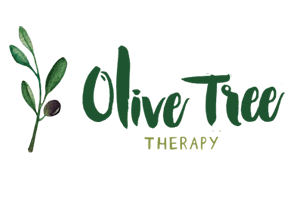That moment your child says...dad
The moment your child says “dad” spontaneously and intentionally, your face will light up. For some, this can be a longer journey than expected.
Kevin first suspected something was wrong with his two-year-old son when he wasn’t speaking and had no eye contact.
He brought his son Leslie to a doctor, who said it looked like Leslie had some developmental delay.
“No verbal language is a big problem to me,” Kevin says.
“We worried about this because normally my friends’ kids, about one years or one and half years, can all speak but my son was still not verbal. It was a big problem, that’s why we contacted the doctor.”
Five years after Leslie’s initial diagnosis, he was diagnosed with autism. That was 20 years ago. Now 22, Leslie enjoys going to the shopping centre, riding on a bus or boat, listening to classical music and watching Chinese cartoons.
However, he is still non-verbal and, over the years, it has been a challenge for Kevin and his wife to communicate with him.
Augmentative and alternative communication
The introduction of LampWords for Life, a system of augmentative and alternative communication, has made a big difference in their lives. Kevin now uses an iPad to communicate with his son.
“We teach Leslie to use the app to communicate and he can express what he needs, so he enjoys that,” Kevin says.
“It’s very important to Leslie because it helps him communicate his emotions and helps him be less frustrated.”
Leslie now communicates his own ideas and makes comments about his favourite things through the app.
“He likes eating food, like Chinese food, fries or rice noodles, he can use the app and tell me ‘Hey, I like fries or rice noodle or to drink apple juice or go to the shopping centre’, he can tell me,” Kevin says.
Caring for an adult vs caring for a child
Caring for an adult with disabilities is different to caring for a child with disabilities.
“There’s a big difference, Leslie now is a young adult,” Kevin says.
“Because he’s a big guy, a lot of people are concerned about how he might communicate his frustrations or choices.”
“In the past, Leslie could act out or become frustrated because he couldn’t understand what we were asking or,he couldn’t express his own thoughts and feelings,” Kevin says.
“This is very important. So, if you can use the apps to communicate, it helps your child be calm and get their message across; it will make a big difference”
AAC has enriched my life with my son
Augmentative and alternative communication has enriched Kevin’s relationship with his son.
“I can tell him a story,” Kevin says. “I told Leslie ‘Yesterday we went to the shopping centre, yesterday we went to the Opera House or park;.”
He highly recommends alternative communication to parents.
Up to the age of 21, Leslie could say “dad” when prompted with a hand gesture but had not yet called out to his parents spontaneously.
In communication therapy he was taught to use the phrase “dad, can you play piano with me”. The moment he found the button, Leslie looked up at his dad and smiled. A connection had been made with dad that was going to be the beginning of a fun family ritual around the piano. The joy on their face said...it was worth the wait.Amy Cheng / Stephanie Wong

